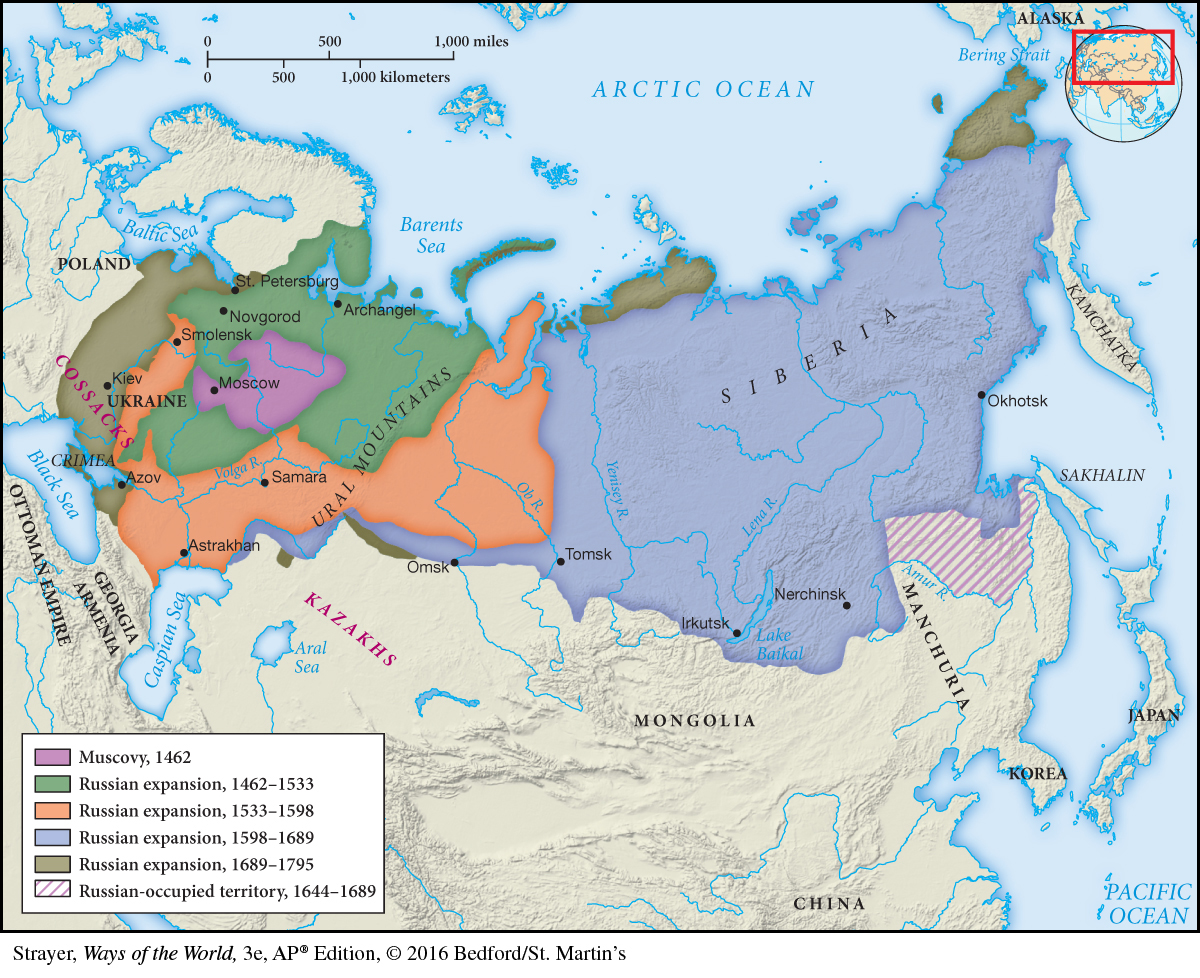The Steppes and Siberia: The Making of a Russian Empire
At the same time as Western Europeans were building their empires in the Americas, the Russian Empire, which subsequently became the world’s largest state, was beginning to take shape. When Columbus crossed the Atlantic, a small Russian state centered on the city of Moscow was emerging from two centuries of Mongol rule. That state soon conquered a number of neighboring Russian-
Guided Reading Question
▪DESCRIPTION
What motivated Russian empire building?
Russian attention was drawn first to the grasslands south and east of the Russian heartland, an area long inhabited by various nomadic pastoral peoples, who were organized into feuding tribes and clans and adjusting to the recent disappearance of the Mongol Empire. From the viewpoint of the emerging Russian state, the problem was security because these pastoral peoples, like the Mongols before them, frequently raided their agricultural Russian neighbors and sold many into slavery. To the east, across the vast expanse of Siberia, Russian motives were quite different, for the scattered peoples of its endless forests and tundra posed no threat to Russia. Numbering only some 220,000 in the seventeenth century and speaking more than 100 languages, they were mostly hunting, gathering, and herding people, living in small-scale societies and largely without access to gunpowder weapons. What drew the Russians across Siberia was opportunity — primarily the “soft gold” of fur-bearing animals, whose pelts were in great demand on the world market.
AP® EXAM TIP
The AP® exam frequently includes questions about empire building throughout world history. Note this example of how the Russian Empire developed.
Whatever motives drove it, this enormous Russian Empire took shape in the three centuries between 1500 and 1800 (see Map 13.2). A growing line of wooden forts offered protection to frontier towns and trading centers as well as to mounting numbers of Russian farmers. Empire building was an extended process, involving the Russian state and its officials as well as a variety of private interests — merchants, hunters, peasants, churchmen, exiles, criminals, and adventurers. For the Russian migrants to these new eastern lands, the empire offered “economic and social improvements over what they had known at home — from more and better land to fewer lords and officials.”22 Political leaders and educated Russians generally defined the empire in grander terms: defending Russian frontiers; enhancing the power of the Russian state; and bringing Christianity, civilization, and enlightenment to savages. But what did that empire mean to those on its receiving end?
